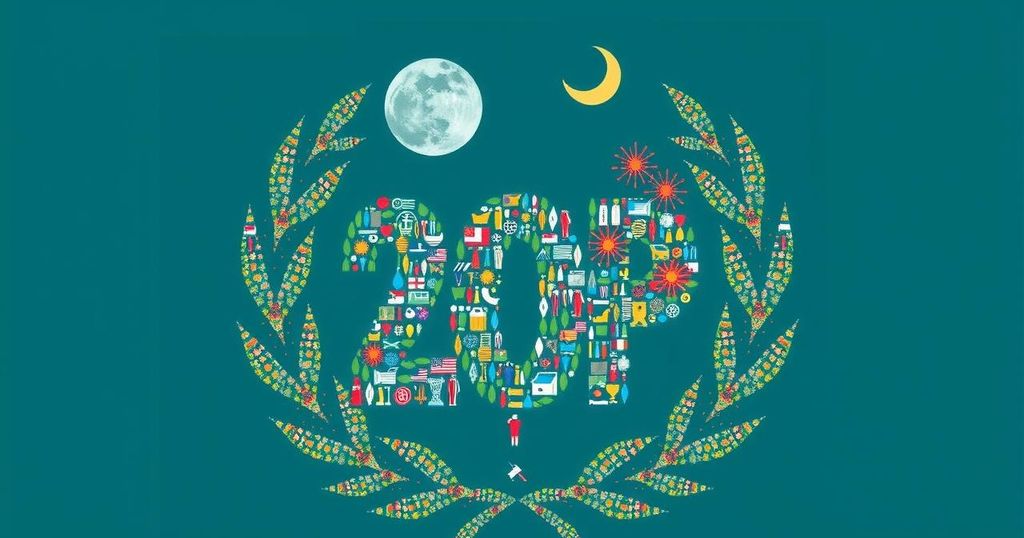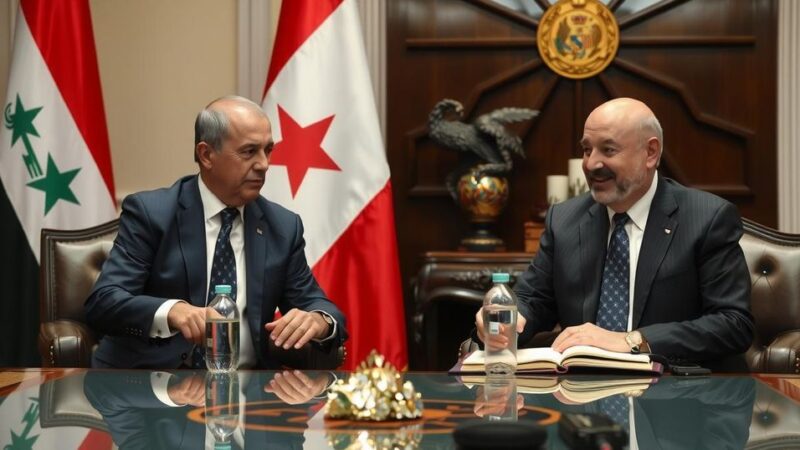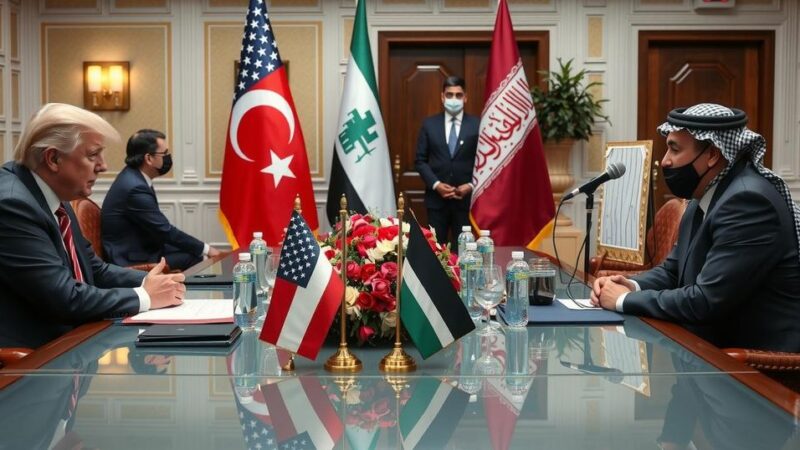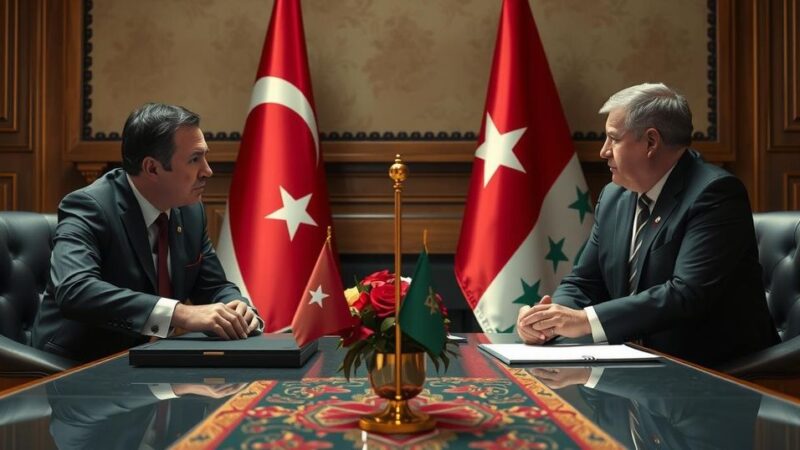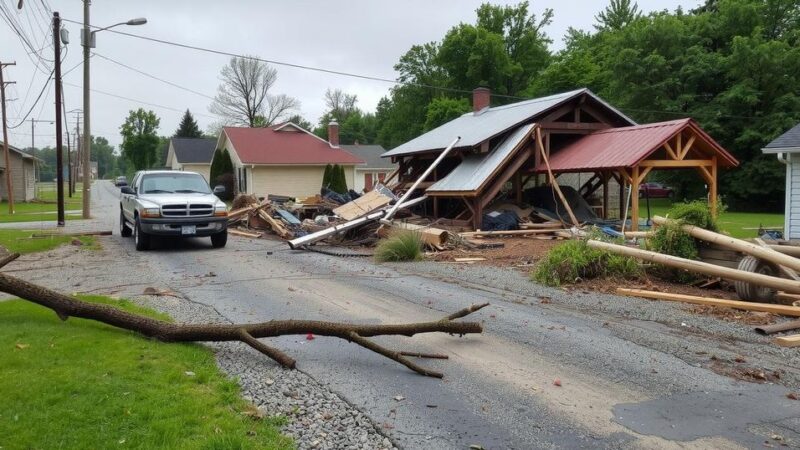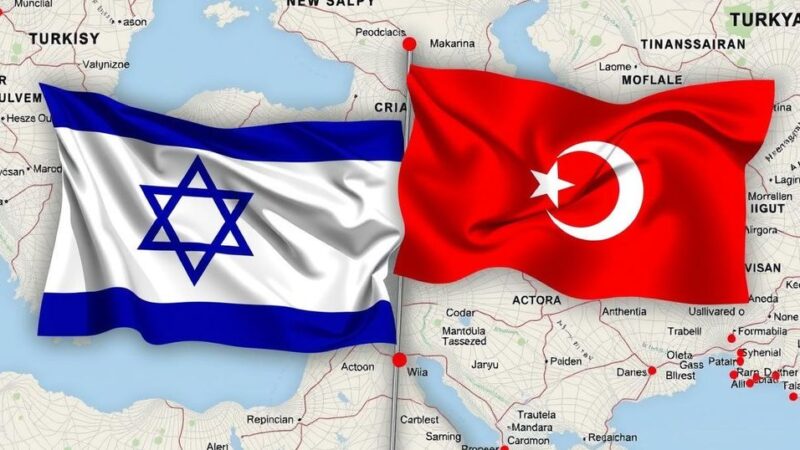Discussions over a $1 trillion climate fund at COP29 faced significant delays, with rich and poor countries clashing on financial contributions. Wealthy nations’ offer of $300 billion was deemed insufficient, as developing nations pushed for $600 billion in grants or low-interest loans. Tensions escalated amid accusations of obstruction, particularly targeting Saudi Arabia’s influence. The importance of transformative financial solutions to combat climate change remains a primary focus as negotiations progress.
Negotiations surrounding a proposed $1 trillion global climate fund extended well beyond the planned conclusion on Friday night, as representatives from wealthy and developing nations clashed over financial commitments. Wealthy nations suggested an annual contribution of approximately $300 billion, falling significantly short of the estimated $1.3 trillion necessary for effective climate action. Developing countries argued that reliance on loans and private investments would exacerbate their debts, demanding that at least $600 billion be offered as grants or low-interest loans to address climate challenges. The urgency of the situation was underscored during an intense negotiation session held in Baku, Azerbaijan, where two groups representing vulnerable nations walked out, citing unfulfilled promises from wealthier nations regarding climate finance.
Amid escalating tensions, participants noted the influence of Saudi Arabia, which faced criticism for allegedly obstructing dialogue aimed at supporting vulnerable countries. Statements from international climate officials revealed deep concerns over the contributions that fossil fuel interests have made to the ongoing discussions. As the meetings progressed, observers expressed trepidation regarding potential setbacks to earlier agreements on transitioning away from fossil fuels, which could stall global climate initiatives. Ultimately, though progress remained uncertain, there was a consensus on the need for robust financial support prioritizing the most adversely affected communities enduring the climate crisis.
The ongoing discussions at COP29 have spotlighted critical disagreements between affluent nations and those less economically developed regarding climate finance contributions. As countries strive to formulate a united response to climate change, the disparity in financial commitment is increasingly evident. Developing nations are advocating for substantial financial aid, emphasizing that cash flow from affluent countries must be a mixture of grants and low-interest loans, enabling them to combat the adverse effects of climate change without incurring unsustainable debt. The broader context of these negotiations reflects an overarching global urgency and the necessity for equitable solutions in the fight against climate change.
The COP29 negotiations emphasize the dramatic divide between wealthy nations and developing countries in addressing the global climate crisis. As discussions continue under the scrutiny of various stakeholders, the effectiveness of future climate initiatives hinges on the delivery of substantial financial support that prioritizes those most affected by climate change. Without a collaborative approach to funding, the gap between rich and poor nations may further complicate the global effort to mitigate the impacts of climate change and transition to sustainable practices.
Original Source: www.theguardian.com

